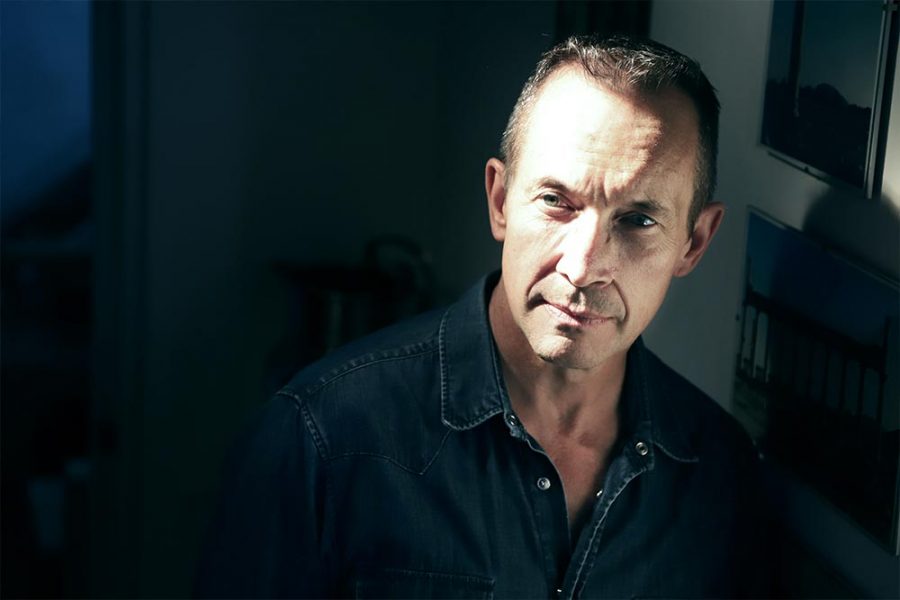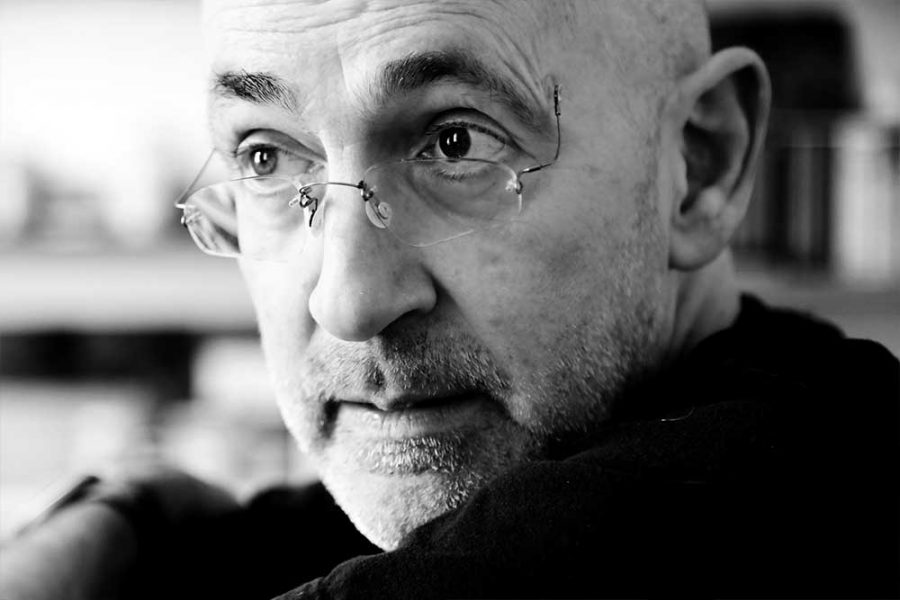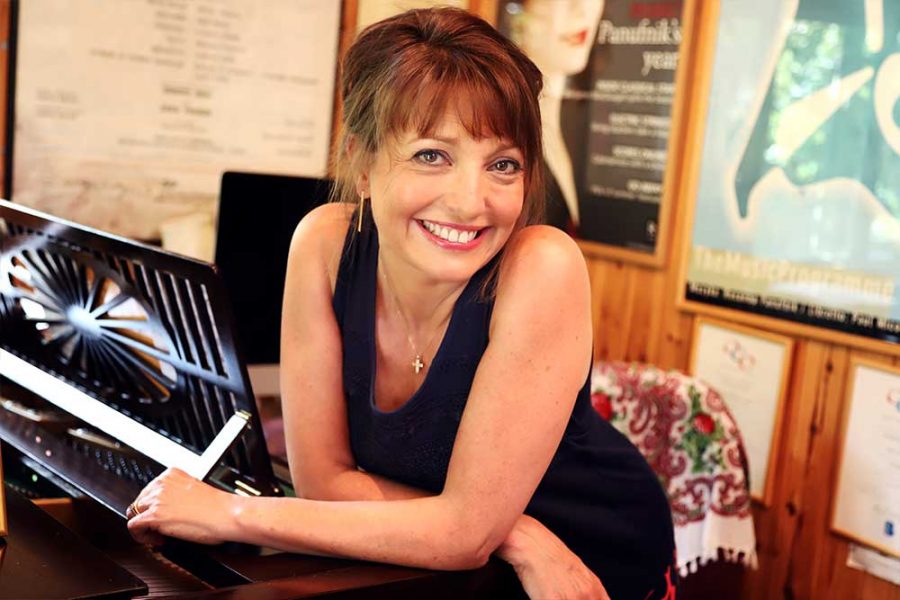Bending Time with Richard Causton

January 2019
Interview and photos by
Frances Marshall
Share this article
With the title as one of Britain’s most ‘imaginative’ composers, we met with Richard Causton at the Barbican, London, in advance of his premiere Ik Zeg: NU to find out about composing for an orchestra, how he gets into a writing headspace and the importance of listening without prejudice.
One advantage of growing up in that environment is that the level of diversity seems completely normal; you don't question it at all."

Where did it all begin for you?
I remember being taken to see Beethoven’s Symphony No.9 when I was very small. It completely electrified me and witnessing, as well as hearing, the whole occasion made a huge impression. Also, a few doors down from us lived a music critic who sometimes used to give us concert tickets and records. It meant more to me than he’ll ever know.
What was it like to grow up in London?
I was born in Whitechapel and grew up in North London. There was an incredible mix of people from all over the world. In my primary school alone there were more than 50 languages spoken. One advantage of growing up in that environment is that the level of diversity seems completely normal; you don’t question it at all.
Where was the point that you went from being relatively unknown to being an established composer?
The gear change was in 1994 when I went on a course for composers and performers who were interested in new music; it was led, brilliantly, by the late Oliver Knussen. After the course, he invited me to write a new piece. It was entitled The Persistence of Memory and Olly conducted it in the Queen Elizabeth Hall with the London Sinfonietta – I was 24 and it was an enormous break.
Did this opportunity make you a more confident composer?
Yes, in some ways but this is a tricky, up and down sort of industry, and you have to stay grounded. Every piece I begin, I feel like I’m starting from first principles. Of course I use various compositional techniques, but there’s no particular technique that I carry from piece to piece – each one comes with its own poetic ideas. After my debut, I had the opportunity of working with the Nash Ensemble and the BBC Symphony Orchestra. I wrote a piece called Millennium Scenes, which was extremely difficult to write and which felt like a watershed for me: I changed a huge amount whilst writing it, both personally and as an artist.

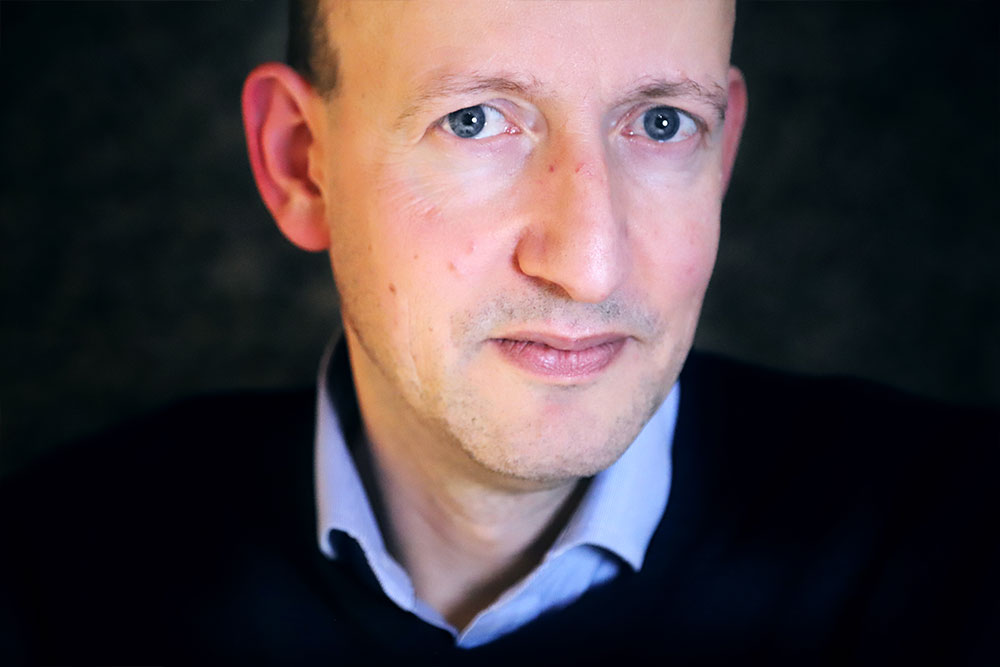

...you can't hang on to the present, it's always slipping through your fingers and if you're lucky enough you might have some wonderful time, but you can never keep it."

How do you keep a clear head around reviews?
When I write, I begin with an idea and then all my efforts go into working out how to present that idea clearly, faithfully and as honestly as I can. Then the reviews and audience reaction become less important because what I really care about is whether the idea has been presented authentically and faithfully. You have to trust yourself.
Your work Ik Zeg: NU (I say: NOW) is about to be premiered with the BBC Symphony Orchestra, conducted by Sakari Oramo at the Barbican. Tell us about the piece.
It takes its title from a book that was written by a relative of mine, Sal van Son, which documents an extended family history and his own experiences in hiding from the Nazis during the Second World War. The title came from his 10-year-old nephew describing history: ‘I say now now, and a moment later it’s already history’. It’s also a brilliant description of how we hear music. It’s also life: you can’t hang on to the present, it’s always slipping through your fingers and if you’re lucky enough you might have some wonderful time, but you can never keep it.
You’ve frequently visited the theme of time, what has made you look at that aspect?
It’s partly that music can do things with time that no other art form can. Music can have a complex and oblique relationship with clock time; it can intensify or stretch it. In Ik Zeg: NU there’s a lot of fast music, which is also quite static; it’s like when you walk past a school playground you can hear so many different games, voices and conversations, and with all that going on it can still seem static – but at the same time playful and too rapid to grasp properly. We can stand back and listen to it as one big landscape. There are other parts of my piece that are extremely slow, but transform gradually over time, which can force us into a very slow place of listening. In the collision of these two kinds of music the ear is pulled in different directions.
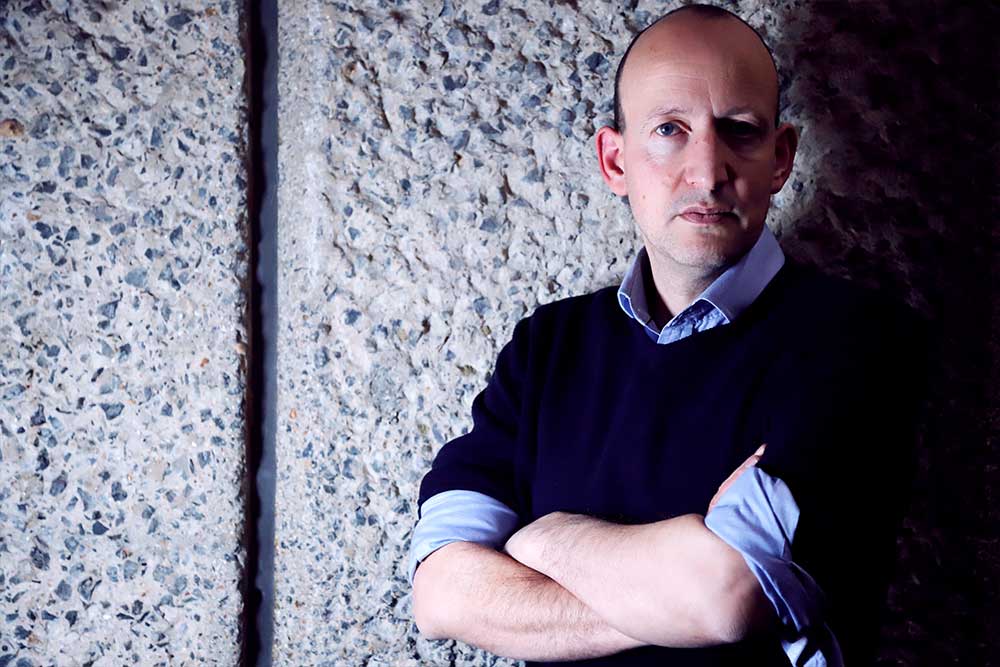


Who has inspired you?
Lots of artists and composers are important to me, but I keep coming back to Messiaen, Boulez and Stockhausen. They completely re-wrote the rules and showed that music can be whatever you want it to be.
Do you have an average day structure?
Whatever’s happening, I get up at 6.30am and there’s immediately a coffee in my hand. Depending on the demands of the day, I’m either straight into the workroom or getting the kids ready for school, which is a challenge in itself! Composing is a solitary activity when you’re in the writing phase. I’m very lucky that my wife understands the world I’m in.
If I’m at the beginning of a piece, I really need complete uninterrupted days to work. Continuity of time is important for me and if I have to get up at the crack of dawn and then burn the midnight oil, I will. After I’ve passed the point in the piece where the main structure is in place, I can then work in shorter time slots to dot the i’s and cross the t’s, and be more balanced with my family.
Many artists struggle with balancing their careers and families to a point where some give up very promising paths. How do you balance it?
It’s difficult. In interviews one’s supposed to talk about professional successes but the truth is that the daily juggling act of being a composer, father and husband is incredibly hard. It can be a struggle, but if you don’t do what you love it’s very difficult to be a good partner and parent. You just need to try to do everything somehow. My wife is also a professional musician and we really support each other in negotiating childcare and workloads.
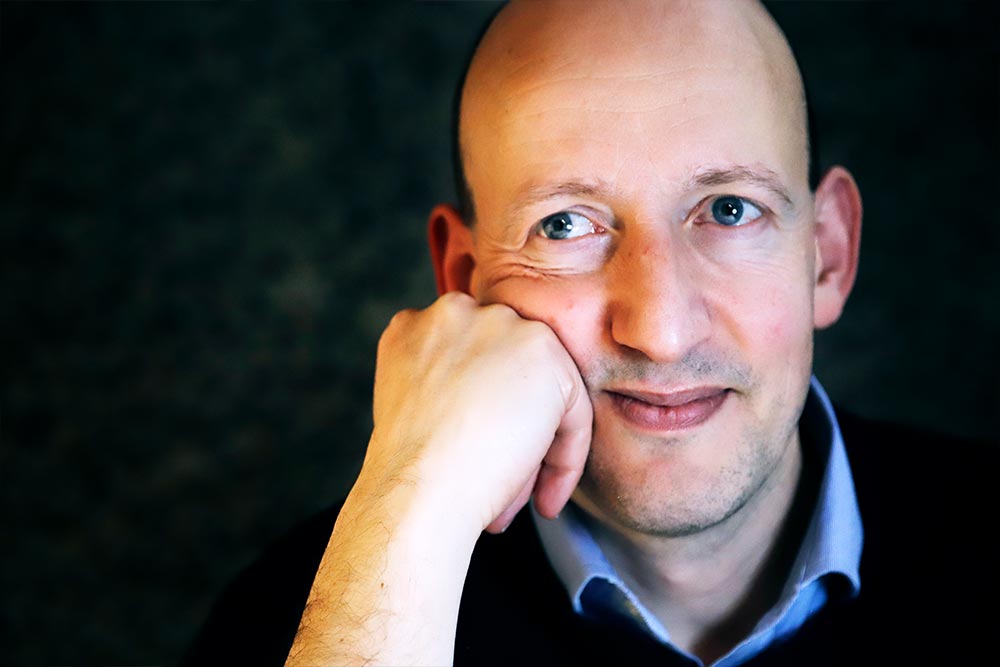

What’s the difference when composing for orchestra?
Writing for orchestra is very hard work and it takes a long time. It’s also much more complicated logistically than chamber music, not least because of the number of instrumental parts that need to be prepared. On the other hand, it’s a thrilling art form. Every musical colour you can imagine is available. There’s a very special chemistry that can occur between the musicians, and when a whole orchestra plays as one, the outcome can be deeply moving.
How do you enter a compositional headspace?
As a composer, there is plenty to put you off, and the canon can be quite oppressive. It’s difficult to write amidst a lot of mental noise: John Cage once said something to the effect that when you start working, everybody is in your studio – the past, your friends, enemies, the music world, and above all, your own ideas – all are there. But as you continue working, they start leaving, one by one, and you are left completely alone. Then, if you are lucky, even you leave.
You have to be a bit like a toddler with building blocks and, if you can be that relaxed and absorbed, the ideas will usually come out to play. If you’re able to do that, the possibilities are inexhaustible.
You have to be a bit like a toddler with building blocks and, if you can be that relaxed and absorbed, the ideas will usually come out to play."

Check out Causton’s Ik Zeg: NU at the Barbican, London
To find out more about Richard Causton see: richardcauston.com
All images displayed in this article are subject to copyright.
Share this article


